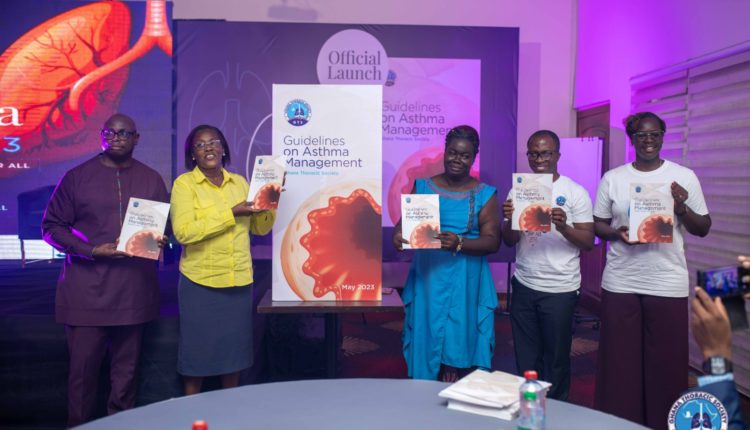The Ghana Thoracic Society (GTS) has unveiled the National Asthma Guidelines, to provide a uniform approach to asthma diagnosis and guide disease treatment and management in Ghana for better patient outcomes.
The Asthma Guidelines was launched on May 2nd, 2023 in Accra to commemorate World Asthma Day and to create awareness and knowledge of asthma, enhance illness treatment, and lessen the disease’s impact.
Dr. Clement Laryea, President of the Ghana Thoracic Society (GTS), said the development of the document is the outcome of significant study and cooperation among healthcare experts and stakeholders in the nation to offer clear and comprehensive advice for diagnosing, treating, and managing asthma in adults and children alike.
According to Dr. Clement Laryea, Asthma is a major public health issue in Ghana, and its prevalence is rising. “Creating this guideline is an important step towards better asthma treatment and lowering the burden of asthma on people, families, and the healthcare system. We believe the manual will provide medical professionals with the tools they need to improve asthma treatment in Ghana and, as a result, the quality of life for people with asthma.”
Dr. Laryea assured that the guideline covers all aspects of asthma care, from initial diagnosis and assessment to ongoing management and follow-up. It also includes medication recommendations, including inhaled corticosteroids, bronchodilators, and oral medications.
Asthma is a chronic respiratory condition affecting millions of individuals throughout the globe, including Ghana. Available records from the World Health Organization (WHO) indicate that over 3 million Ghanaians suffer from asthma, which, if left untreated, may cause severe morbidity and death. Asthma care is critical for preventing and controlling symptoms, improving quality of life, and lowering the risk of severe asthma episodes.
The new guideline also emphasizes the importance of patient education, self-management strategies, and all aspects of asthma care, from initial diagnosis and assessment to ongoing management and follow-up, such as avoiding triggers and maintaining a healthy lifestyle.
The GTS hopes that the guideline will improve the quality of care for asthma patients in Ghana and reduce the burden of the disease on individuals, families, and society as a whole.
The GTS, through the Ghana Health Service and the Ministry of Health will disseminate the guidelines to healthcare professionals nationwide and provide training on its implementation. The society also plans to work with policymakers to ensure the guideline is integrated into national health policies and programs.


Comments are closed.